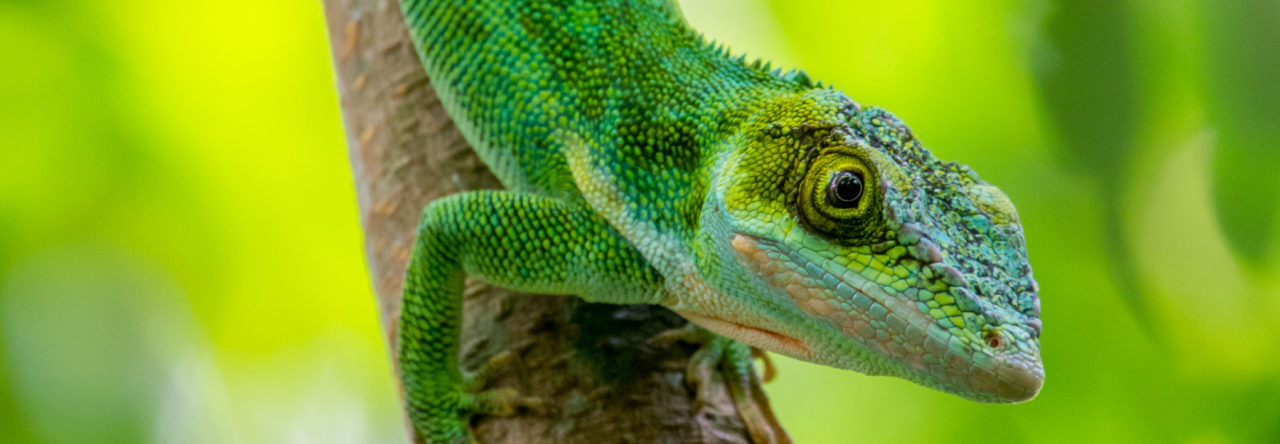Maternal nest-site choice plays an important role in determining the developmental environment of oviparous organisms, but even so, almost nothing is known about anole nest-site choice. Jenna Pruett (Ph.D. student in Dan Warner’s lab at Auburn) and company set out to examine what microhabitats female Anolis sagrei are choosing to lay their eggs in on the Warner Lab’s experimental intercoastal islands, and to experimentally manipulate eggs by altering nest microhabitat locations in the field. Jenna found 100% of eggs under some type of cover object (rocks, leaf litter, etc.)  and quantified nest habitats in comparison to what was available in the environment, finding that moms choose nest sites that were cooler and moister habitats than what was available on the island overall.
and quantified nest habitats in comparison to what was available in the environment, finding that moms choose nest sites that were cooler and moister habitats than what was available on the island overall.
The second part of this study involved taking 400 eggs (200 placed in June and 200 placed in August) from the lab breeding colony and incubating them in the field across all island microhabitat types. The control eggs were sealed in a Petri dish to ensure a constant moisture supply throughout incubation. Survival was higher in the control eggs with constant moisture and higher in August. They found that survival probability decreased as the incubation temperature increased and that hatchling body condition improved with increased soil moisture.
To top off this very neat study, Jenna was the winner of the Division of Animal Behavior best student presentation award, the Marlene Zuk Award. Congratulations Jenna!



Leave a Reply